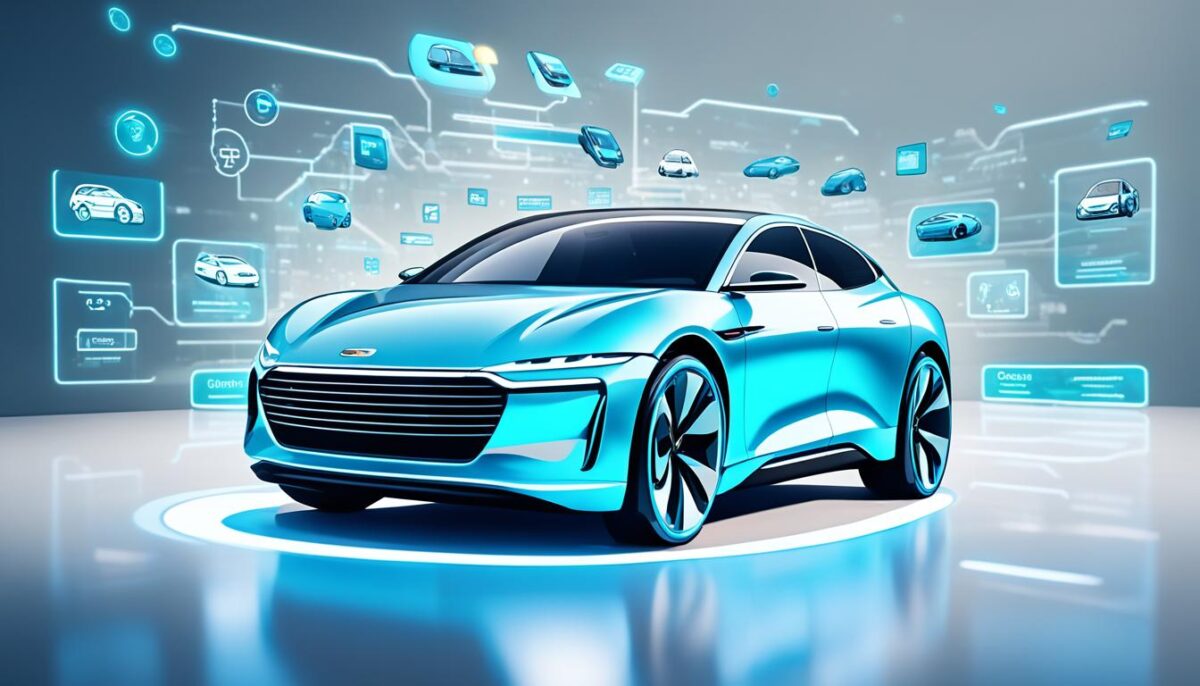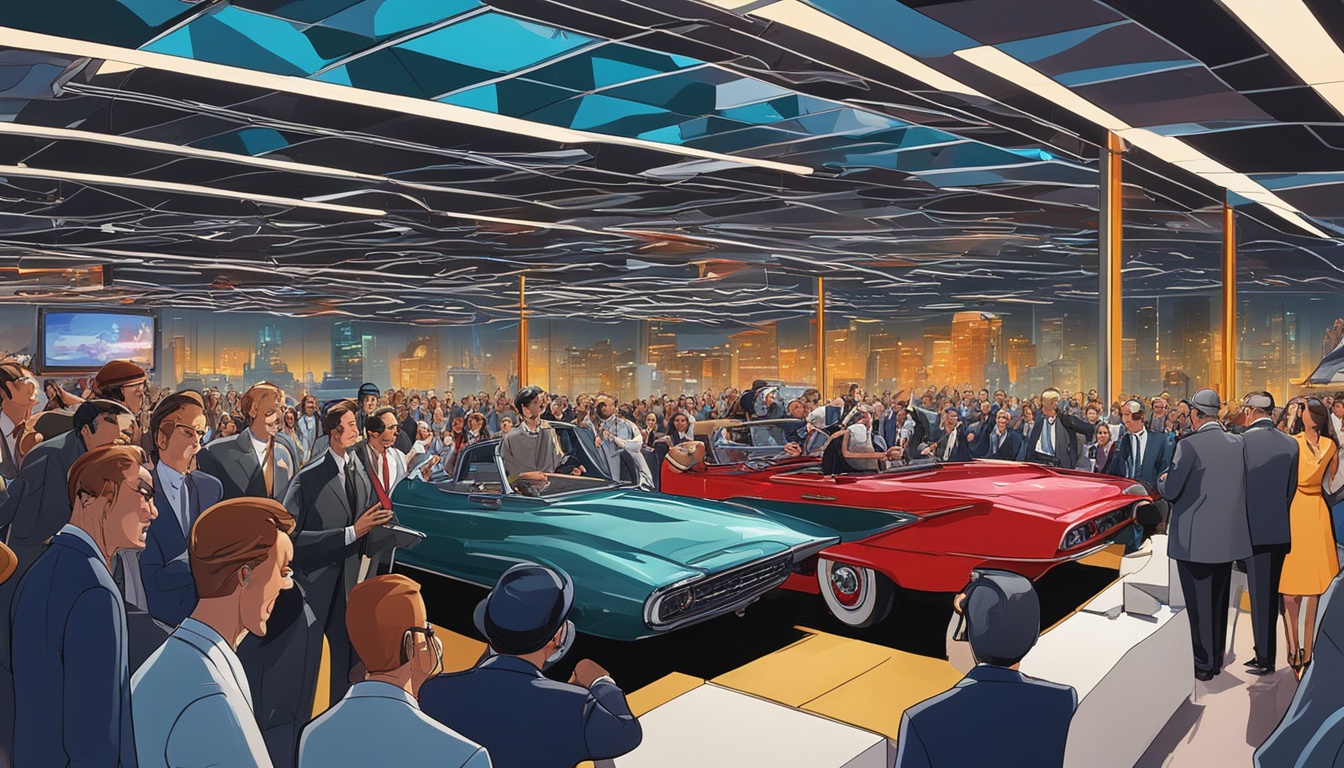The world of auto auctions has undergone a remarkable transformation, evolving from humble beginnings to become a pivotal force in the automotive industry. As we embark on this captivating journey, we’ll explore the past, present, and future of auto auctions, uncovering how they have shaped the way we buy, sell, and remarket vehicles.
Auto auctions have long played a crucial role in the automotive ecosystem, serving as a vital link between buyers and sellers. From their early days as local gatherings to their rise as national powerhouses, these dynamic marketplaces have facilitated the seamless flow of used vehicles, catering to the needs of both consumers and industry professionals.
Now, as we navigate the digital age, auto auctions have embraced technology, ushering in a new era of online car sales and vehicle remarketing. This transformation has opened up unprecedented opportunities, allowing us to tap into a wider pool of buyers and sellers, while streamlining the entire process.
As we look ahead, the future of auto auctions promises even more exciting developments. Innovations in areas such as artificial intelligence, data analytics, and digital platforms are set to redefine the way we engage with this dynamic market. By understanding the evolution of auto auctions, we can better anticipate the trends and technologies that will shape their future, ultimately enhancing the way we buy, sell, and manage our vehicles.
Tracing the Origins: The Early Days of Auto Auctions
The history of auto auctions dates back to the early 20th century, when these events were small, local gatherings where dealers and individuals could buy and sell used vehicles. Over time, the history of auto auctions saw a remarkable transformation, as these auctions grew in scale and prominence, becoming major players in the automotive industry.
From Humble Beginnings to National Prominence
In the early days, classic car auctions were often held in small rural towns, where farmers and local residents could come together to trade their used vehicles. As the automobile industry expanded, these auctions began to attract a wider audience, with dealers and wholesalers recognizing the value of these dealer-only auctions as a means to acquire inventory for their businesses.
The growth of the auto auction industry was further fueled by the rise of wholesale car sales, as manufacturers and rental car companies sought efficient ways to offload their used vehicles. Auctions provided a centralized marketplace where these sellers could connect with a vast network of buyers, facilitating the remarketing process and driving the industry’s expansion.
| Year | Number of Auto Auctions | Total Sales Volume |
|---|---|---|
| 1950 | 100 | $500 million |
| 1975 | 500 | $5 billion |
| 2000 | 1,000 | $50 billion |
| 2020 | 1,500 | $100 billion |
The table above illustrates the remarkable growth of the auto auction industry over the past 70 years, with the number of auctions and total sales volume increasing exponentially. This expansion has cemented the role of auctions as an essential component of the automotive remarketing process, connecting sellers and buyers on a national scale.
“Auto auctions have become an indispensable part of the automotive ecosystem, providing a reliable and efficient channel for the wholesale and remarketing of used vehicles.”
Auto Auctions in the Digital Age
The 21st century has ushered in a transformative era for auto auctions, as the industry has wholeheartedly embraced digital platforms. Online and mobile technologies have revolutionized the way vehicles are bought and sold, allowing for greater accessibility, efficiency, and transparency. At the forefront of this digital revolution, we’ve witnessed the rise of innovative online auto auctions and digital car sales platforms that are redefining the automotive industry.
Gone are the days when auto auctions were confined to physical locations. Today, buyers and sellers can participate in online auto auctions from the comfort of their homes or on-the-go with mobile bidding. These digital car sales platforms have opened up new avenues for reaching wider audiences, streamlining the buying and selling process, and providing real-time data and insights.
Leveraging Technology for Efficiency and Accessibility
The integration of technology in auto auctions has been a game-changer, empowering both buyers and sellers. Sophisticated auction software now enables seamless remote bidding, comprehensive vehicle information, and seamless transaction processing. This has not only made the auction experience more convenient but has also fostered greater transparency and trust in the process.
- Online catalogues and virtual tours provide buyers with detailed information and images of vehicles, allowing them to make informed decisions without physically visiting the auction site.
- Mobile bidding capabilities enable buyers to participate in auctions from anywhere, expanding the pool of potential buyers and driving up competition.
- Automated back-end systems streamline the logistics, payment, and delivery processes, enhancing the overall efficiency of auto auctions.
As the automotive industry continues to evolve, we can expect to see even more innovative technologies shaping the future of online auto auctions and digital car sales platforms. The integration of artificial intelligence, machine learning, and data analytics will further refine the auction experience, providing unprecedented insights and personalized services to both buyers and sellers.
| Feature | Benefit |
|---|---|
| Online Catalogues and Virtual Tours | Comprehensive vehicle information and immersive experience for buyers |
| Mobile Bidding | Increased accessibility and participation, driving up competition |
| Automated Back-end Systems | Streamlined logistics, payment, and delivery processes |

“The digital transformation of auto auctions has ushered in a new era of convenience, transparency, and efficiency for both buyers and sellers.”
The Road Ahead: Innovations Shaping Auto Auctions’ Future
As we peer into the future, we are excited by the wealth of innovations poised to reshape the auto auction landscape. The integration of cutting-edge technologies like artificial intelligence and machine learning will play a pivotal role in streamlining operations, enhancing buyer-seller interactions, and driving greater efficiency across the industry.
Moreover, the emergence of autonomous vehicles presents intriguing possibilities for the future of auto auctions. As self-driving cars become more prevalent, we envision a seamless integration of these advanced transportation solutions into the remarketing process, enabling a new era of convenience and accessibility for both buyers and sellers.
Blockchain technology also holds immense promise for the auto auction sector. By leveraging the security and transparency of blockchain-based solutions, we can revolutionize the way vehicle history, ownership records, and transaction data are managed, fostering greater trust and transparency throughout the remarketing ecosystem.

